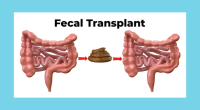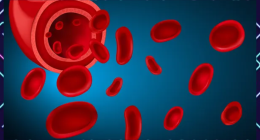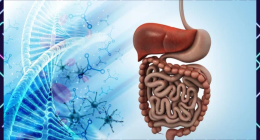The Relationship between nutrient in Meat and Dairy Products Cancer-Fighting Immune Cell
A recent study conducted by researchers at the University of Chicago has uncovered a promising link between a fatty acid found in meat and dairy products and the enhanced activity of T-cells, a crucial component of the immune system that plays a vital role in combating cancer. Published in the esteemed journal Nature, the findings raise the intriguing possibility of utilizing trans-vaccenic acid (TVA) as a dietary supplement to augment the efficacy of cancer treatments.
The intricate relationship between our dietary choices and overall health is a complex one that demands careful consideration of various factors, including the vast array of foods available to us. In this context, a recent study led by Dr. Jing Chen from the University of Chicago has shed light on the potential of specific nutrients to bolster the immune system’s defense against cancer.
Dr. Chen’s research delves into the potential effects of blood molecules, encompassing metabolites and nutrients, on the initiation and progression of cancer. “After millions of years of human evolution, circulating nutrients must be vital to human physiology and pathologic responses like immune system response,” asserts Dr. Chen. Driven by this conviction, the research team embarked on a comprehensive endeavor to identify nutrients capable of strengthening anti-tumor immunity.
Chen’s initial database comprised approximately 700 food-derived metabolites. Through meticulous refinement, this extensive list was narrowed down to 255 bioactive molecules, establishing a comprehensive blood nutrient library. Following an in vitro screening aimed at identifying compounds that could stimulate CD8+ T cell responses against lung cancer cells, the top six candidates emerged.
TVA’s Role in Cancer Resistance
The most prevalent component identified by the screening process was TVA, a naturally occurring fatty acid found in dairy products, meat, and lamb. Notably, the human body is incapable of synthesizing TVA independently.
Further investigation revealed that less than 20% of TVA in humans and mice is converted into byproducts like rumenic acid, suggesting that it may possess distinct functions. The researchers discovered that TVA interacts with a receptor known as GPR43 to activate T cells. This interaction triggers the activation of the CREB cell signaling pathway, which promotes cell growth and survival. Interestingly, mice lacking the GPR43 receptor exhibited reduced anti-tumor efficacy of CD8+ T cells.
Therapeutic Potential of TVA
Chen emphasizes the remarkable translational potential of TVA, given its natural occurrence in food sources. He envisions its utilization as a dietary component or a therapeutic supplement in conjunction with established treatment strategies to enhance clinical outcomes.
For instance, a combination of immune checkpoint inhibitors and TVA could be explored to develop more effective immunotherapies for cancer patients.
TVA could also be employed in conjunction with specific T-cell engagers to treat patients with B-cell acute lymphoblastic leukemia (B-ALL) or with chimeric antigen receptor (CAR) T cells to achieve more effective cancer therapy.
Sure, here is a rewrite of the text:
Nutrient in Meat and Dairy Products Boosts Cancer Immune Cell Responses
A recent study from the University of Chicago has found that a fatty acid found in meat and dairy products can increase the activity of T-cells, which are white blood cells that help fight cancer. This fatty acid, called trans-vaccenic acid (TVA), could potentially be used as a dietary supplement to improve the effectiveness of cancer treatments.
The study, published in the journal Nature, found that TVA binds to a receptor on T-cells called GPR43. This binding activates the CREB cell signaling pathway, which promotes cell growth and survival. In mice, T-cells that lacked the GPR43 receptor were less effective at killing cancer cells.
The researchers believe that TVA could be used as a dietary supplement to improve the effectiveness of cancer treatments that rely on T-cells, such as immunotherapy. Immunotherapy is a type of cancer treatment that uses the immune system to fight cancer.
Key Points
- TVA is a fatty acid found in meat and dairy products.
- TVA can increase the activity of T-cells.
- TVA could potentially be used as a dietary supplement to improve the effectiveness of cancer treatments.
Additional Points
- TVA is a naturally occurring fatty acid that is found in dairy, meat, and lamb.
- The human body cannot produce TVA on its own.
- TVA binds to a receptor called GPR43 on T-cells.
- This binding activates the CREB cell signaling pathway, which promotes cell growth and survival.
- T-cells that lack the GPR43 receptor are less effective at killing cancer cells.
- TVA could be used as a dietary supplement to improve the effectiveness of immunotherapy.
Future Directions
The study highlights the potential of certain dietary supplements, such as TVA, to augment T-cell activity and enhance T-cell-dependent cancer therapies. Chen’s team has demonstrated the ability of TVA to improve CD8+ T-cell performance and elicit an anti-tumor effect in mouse models.
These findings pave the way for future clinical trials investigating the efficacy of TVA as an adjuvant therapy in conjunction with T cell-based immunotherapies.
Continue to check our website soundhealthandlastingwealth.com for more articles of this kind. And, please use our comment section as well, we would love to hear from you.








